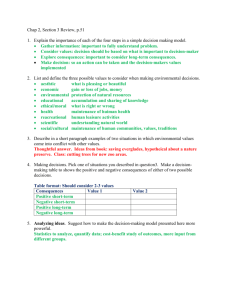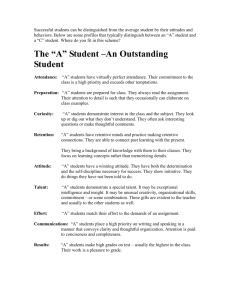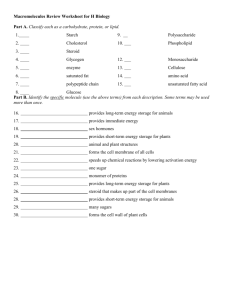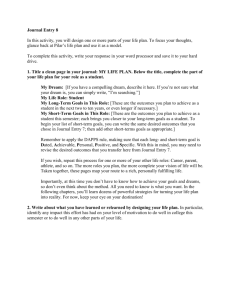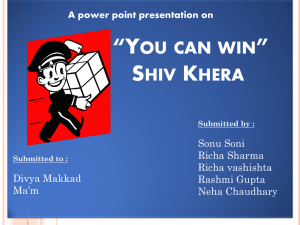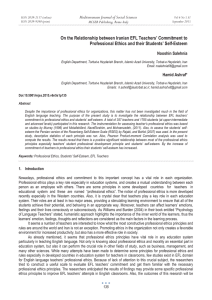Chapter 2 Life Skills Answer Sheet
advertisement
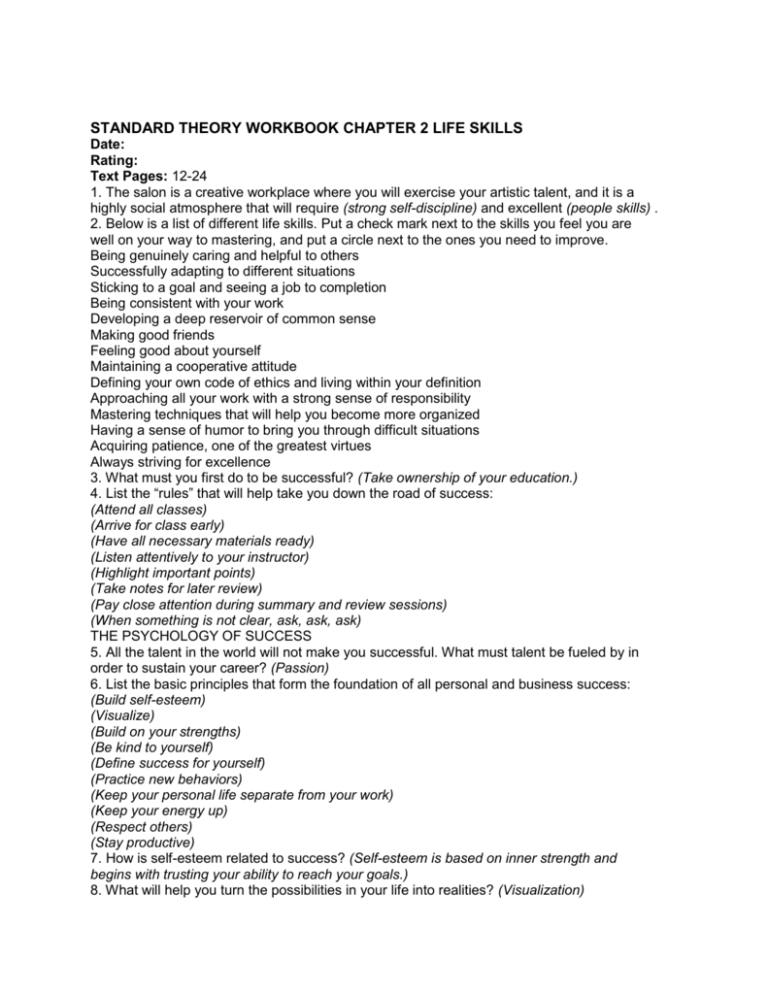
1 4 STANDARD THEORY WORKBOOK CHAPTER 2 LIFE SKILLS Date: Rating: Text Pages: 12-24 1. The salon is a creative workplace where you will exercise your artistic talent, and it is a highly social atmosphere that will require (strong self-discipline) and excellent (people skills) . 2. Below is a list of different life skills. Put a check mark next to the skills you feel you are well on your way to mastering, and put a circle next to the ones you need to improve. Being genuinely caring and helpful to others Successfully adapting to different situations Sticking to a goal and seeing a job to completion Being consistent with your work Developing a deep reservoir of common sense Making good friends Feeling good about yourself Maintaining a cooperative attitude Defining your own code of ethics and living within your definition Approaching all your work with a strong sense of responsibility Mastering techniques that will help you become more organized Having a sense of humor to bring you through difficult situations Acquiring patience, one of the greatest virtues Always striving for excellence 3. What must you first do to be successful? (Take ownership of your education.) 4. List the “rules” that will help take you down the road of success: (Attend all classes) (Arrive for class early) (Have all necessary materials ready) (Listen attentively to your instructor) (Highlight important points) (Take notes for later review) (Pay close attention during summary and review sessions) (When something is not clear, ask, ask, ask) THE PSYCHOLOGY OF SUCCESS 5. All the talent in the world will not make you successful. What must talent be fueled by in order to sustain your career? (Passion) 6. List the basic principles that form the foundation of all personal and business success: (Build self-esteem) (Visualize) (Build on your strengths) (Be kind to yourself) (Define success for yourself) (Practice new behaviors) (Keep your personal life separate from your work) (Keep your energy up) (Respect others) (Stay productive) 7. How is self-esteem related to success? (Self-esteem is based on inner strength and begins with trusting your ability to reach your goals.) 8. What will help you turn the possibilities in your life into realities? (Visualization) 9. How can you maintain a positive self-image? (Practice doing what you are good at.) 10. You should not depend on how other people define success. How do you define success? 11. How can you develop success? (Practice positive behaviors such as speaking with confidence, standing tall, and using good grammar.) 12. What is a counterproductive activity in the salon? (Talking about yourself and others at work) 13. Circle the correct answer: Successful stylists do / do not run themselves ragged; they do / do not eat, sleep, and drink beauty. They do / do not take care of their personal needs by spending time with family and friends, having hobbies, and enjoying recreational activities. 14. List three ways to show respect for others: (Exercise good manners) (Do not interrupt people) (Practice being a good listener) 15. Unscramble these terms and then match them with their definition below. naotiostcrinpra mfepnictsioer eagm apln (procrastination) To put off until tomorrow what you can do today. (perfectionism) The compulsion to do things perfectly (game plan) The conscious act of planning your life instead of just letting things happen. MOTIVATION AND SELF MANAGEMENT 16. What is the difference between motivation and self-management? (Motivation instinctively propels you to do something; self-management is a well-thought-out process.) 17. The best motivation for you to learn comes from an (inner desire) to grow. 18. Name four guidelines to follow to enhance your creativity. a) (Don’t be self-critical) c) (Don’t look to others for motivation) b) (Change your vocabulary) d) (Don’t try to go it alone) 7 19. What does “change your vocabulary” mean? (To build a positive vocabulary by using active problem solving words) What are some examples? (Explore, analyze, determine) 20. Why is it important to not be self-critical? (Criticism blocks the creative mind from exploring ideas and discovering solutions.) MANAGING YOUR CAREER 21. What is a mission statement, and how is it useful to your personally? (A mission statement establishes the values a business or individual wants to operate by and sets future goals.) 22. Write a personal mission statement: GOAL SETTING 23. What is the purpose of setting goals? (It helps you decide what you want out of your life.) 24. Why is it important to map out your goals? (To see where you need to focus your attention and what you need to learn in order to fulfi ll your dreams) 25. Describe the difference between short-term goals and long-term goals. (Short-term goals are those you can accomplish in a year or less. A long-term goal is measured in larger sections of time, 5 years, 10 years, or longer.) 26. List five short-term goals and five long-term goals and the actions required to achieve them. Short-Term Goals Action Long-Term Goals Action TIME MANAGEMENT 27. Read through the list of time management techniques. Rate each as either a personal strength or an area you need to develop or improve. Time Management Techniques Strength Development Opportunity Prioritizing tasks Designing my own time management system Not taking on more than I can handle Learning problem solving techniques Giving myself free time to regroup Taking notes of my thoughts and ideas Making schedules for my regular commitments Rewarding myself for good work Using to-do lists to prioritize tasks and activities Making time management a habit STUDY SKILLS 28. If you find studying overwhelming what can you do? (Focus on small tasks.) 29. What can you do if you fi nd your mind wanders in class? (Write down key words or phrases. Stay after class and ask questions based on your notes.) 30. List the habits you can develop to improve your study skills. (Establish a comfortable, quiet spot where you can study uninterrupted.) (Have everything you need before you begin.) (Remain as alert as possible by sitting upright.) (Start out by estimating how much study time you need.) (Study when you feel most energetic and motivated.) (Make good use of your time: study while you are waiting.) (Study a section of a chapter at a time, instead of the entire chapter.) (Make a note of key words and phrases as you go along.) (Test yourself on each section to ensure understanding.) ETHICS 31. The moral principles by which we live and work are (ethics) . 32. List the five ways to show you are ethical. 1. (Provide skilled and competent services.) 2. (Be honest, courteous, and sincere.) 3. (Never share what clients have told you privately with others—even your closest friend.) 4. (Participate in ongoing education and stay on track with new information, techniques, and skills.) 5. (Always give correct information to clients about treatments and any products they may want to purchase.) 33. Describe how to maintain your integrity: (Make sure that your behavior and actions match your values.) PERSONALITY DEVELOPMENT AND ATTITUDE 34. What are the “ingredients” of a healthy, well-developed attitude? (Diplomacy, tone of voice, emotional stability, sensitive, values and goals, receptivity, and communication skills) 35. What does it mean to be tactful? (Being straightforward, not critical)
